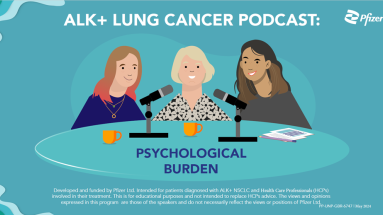Managing nutritional concerns: constipation
Constipation can be caused by certain cancer treatments as well as nausea and pain medications, a change in diet or a decrease in your usual activity level. Constipation occurs when your stool becomes hard, dry and difficult to pass. Your bowel movements may be less frequent, painful and accompanied by cramps, gas or bleeding. You may also feel sick or bloated.1
Tips for people experiencing constipation2,3
- Be sure to stay hydrated – most people need to drink a minimum of 2 litres (3.5 pints) of fluids a day
- Drinking warm liquids may help to stimulate a bowel movement
- Consume foods rich in dietary fibre such as bran, whole grain breads, rice, cereal and pasta, as well as fresh fruits and vegetables, beans and nuts
- If bowel gas is a concern, limit gas-producing foods such as carbonated beverages, broccoli, cauliflower, cabbage, peas, beans, onions and raw peppers. Also reduce the likelihood of swallowing air by not drinking through a straw or chewing gum
- Stay active – a short walk may help treat and prevent constipation
- Speak to your nurse or doctor if you find that dietary management does not help to improve bowel movements, as you may need medication to help promote regularity
More information is available at Macmillan Cancer Support.
If you have cancer of the bowel, or you think your cancer treatment is causing constipation, ask your doctor or specialist nurse for advice.
References
- Constipation. American Cancer Society. Accessed August 2022.
- Elliot, L. Symptom Management of Cancer Therapies in Lesser M, Ledesma N, Bergerson S, Trujillo E, eds. Oncology Nutrition for Clinical Practice. Oncology Nutrition Dietetic Practice Group of the Academy of Nutrition and Dietetics: 2013. pg 116.
- Macmillan Cancer Support. Constipation. 2019. Accessed August 2022.
The health information contained herein is provided for educational purposes only and is not intended to replace discussions with a medical professional. All decisions regarding patient care should be made with a medical professional.










